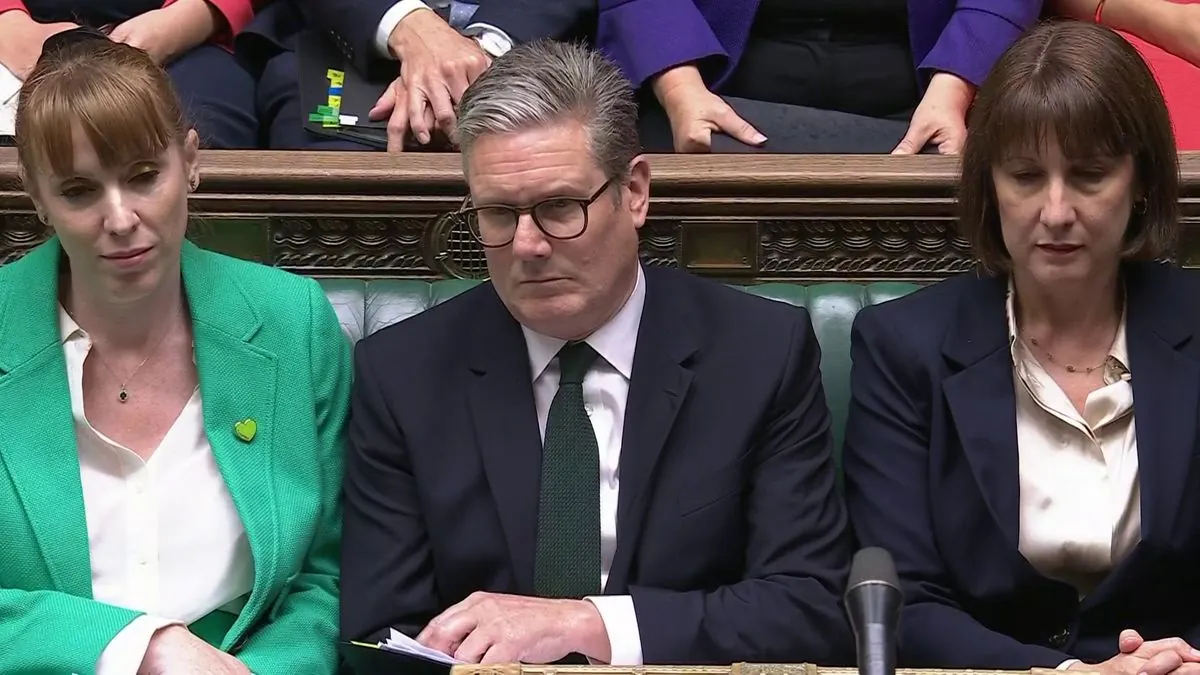UK Government Wins Vote on Pension Cuts Amid Political Controversy
Government secures victory on winter fuel payment reductions, facing internal dissent and opposition criticism. Labour's focus on "working people" raises questions about intergenerational wealth distribution strategy.

The UK government recently secured a victory in a parliamentary vote concerning reductions to winter fuel payments, a benefit introduced in 1997. The Conservative motion to block these cuts was defeated by 348 votes to 228, resulting in a government majority of 120. However, this win came at a significant political cost for the Prime Minister.
Sir Keir Starmer's Labour government, which has been in power for approximately two months, faced substantial opposition from within its own party and the general public regarding this unpopular measure. The decision to reduce winter fuel payments, which currently range from £100 to £300 depending on individual circumstances, affects approximately 10 million pensioners in the UK.
Rachel Reeves, the Chancellor of the Exchequer, justified the cuts by citing the precarious state of public finances. The UK's public sector net debt stood at £2.5 trillion at the end of March 2023, highlighting the fiscal challenges faced by the government. However, critics argue that the government's recent spending on settling pay demands from trade unions undermines this fiscal responsibility argument.

Sir Keir Starmer's approach has raised questions about his long-term strategy and political communication skills. His repeated use of the term "working people" in speeches and during the election campaign has led to speculation about a potential shift in Labour's focus. This emphasis on the working population has sparked debates about intergenerational fairness in wealth distribution, particularly as pensioners are not typically considered "working people."
The controversy surrounding the winter fuel payment cuts draws parallels to the public anger that followed the minimal 75p rise in pensions implemented by Gordon Brown in 1999 when he served as Chancellor of the Exchequer. Brown's tenure also saw significant changes to private pensions through the removal of tax reliefs on dividends.
"You cannot expect big pay rises, despite the increases for teachers, junior doctors, and train drivers. These were agreed because the cost of settling was less than the cost of strikes."
The Labour government's focus on fiscal responsibility has led to concerns about potential impacts on savers in the upcoming October Budget. Many of these savers are "working people" attempting to build their financial security for the future. This situation raises questions about how Labour MPs and trade unions will respond to policies affecting this demographic.
As the UK grapples with economic challenges, including a recent peak inflation rate of 11.1% in October 2022 (the highest in 41 years), the government's decisions on welfare spending and wealth distribution continue to be scrutinized. The current state pension in the UK is £203.85 per week for the full basic amount, with the state pension age set at 66 for both men and women.
The ongoing debate surrounding these policy decisions reflects the complex balance between fiscal responsibility, social welfare, and political strategy in the UK's current economic landscape. As the government navigates these challenges, the impact on various demographic groups and the long-term implications for the country's financial health remain at the forefront of public discourse.


































